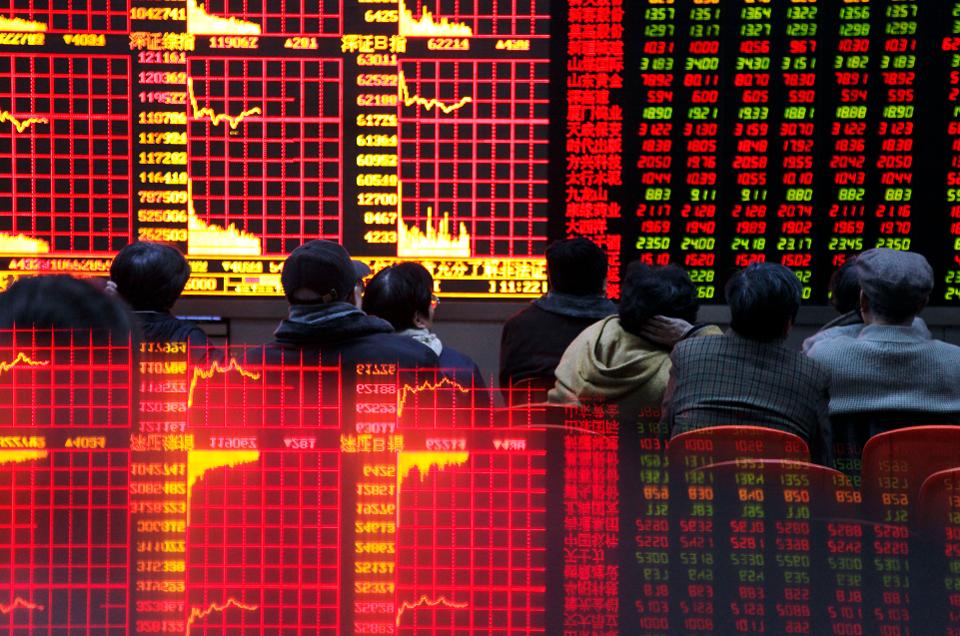RIO DE JANEIRO, BRAZIL – The turn of the New Year saw a sharp drop for Chinese stock markets, which had been closed since January 24th and had their return deferred to this Monday, February 3rd, amid growing concerns about the coronavirus.
The Shanghai Composite Index fell 7.72 percent today, closing the trading day at 2,746.61 points and the highest daily drop since 2015, while the less comprehensive Shenzhen Composite suffered an even greater drop, from 8.41 percent, to 1,609.00 points. The iron ore traded on the Dalian exchange also plummeted, 7.97 percent, to 606.5 Yuan.
As a result, the Chinese stock markets lost approximately US$400 billion in market value and more than 3,000 shares reached the ten percent drop limit, according to Bloomberg data, despite the measures taken by the government and the Chinese Central Bank to contain the country’s existing “sell-off”.

The monetary authority injected 1.2 trillion yuan (US$ 173 billion) in liquidity into the financial system through a seven-day and 10-day reverse repurchase offer (repos), reducing interest rates on these operations by ten basis points to 2.4 and 2.55 percent, respectively.
However, investors continue to spread the news about the coronavirus. During the Chinese holiday, the disease continued to spread, infecting more than 17,000 people in China and causing over 360 deaths. More than 20 other countries have also reported cases of the disease.
Global efforts to contain the spread increased after the Philippines reported the first fatality outside China and the US confirmed more infections. Meanwhile, China has accused the US of “overreacting” to the outbreak by declaring a national emergency over the epidemic. The White House temporarily banned foreigners from China from entering its territory.
In China’s economic news, the latest figures are disappointing, in a scenario in which estimates for the Asian giant’s economy are already expected to decline as a result of the coronavirus.
China’s purchasing managers index (PMI) fell from 51.5 in December to 51.1 in January, according to a Markit survey with Caixin Media, pointing to slower growth in the manufacturing sector of the world’s second largest economy. Official data showed that profits of China’s large industrial companies fell 3.3 percent in 2019. In December alone, the annual reduction in profits was 6.3 percent, up from 5.4 percent in November.
In other parts of Asia, the Japanese Nikkei stock index retreated 1.01 percent in Tokyo at 22,971.94 points, pressured by shares in the construction and electronics sectors, South Korea’s Kospi saw a marginal decline of 0.01 percent in Seoul at 2,118.88 points, and Taiex fell 1.22 percent in Taiwan at 11,354.92 points, while Hang Seng rose 0.17 percent in Hong Kong at 26,356.98 points. In Oceania, the Australian exchange also went red, down 1.34 percent from S&P/ASX 200, at 6,923.30 points.

